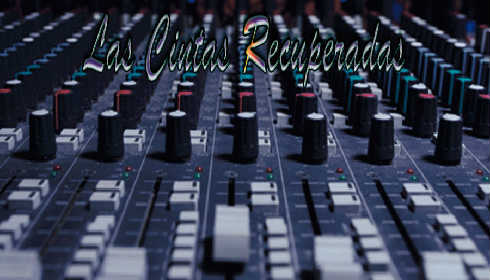
01.Moulin Rouge - Lalo Schifrin
02.Oignons [Mamba] - Lalo Schifrin
03.Fascination [Boléro] - Lalo Schifrin
04.Cabello Rojo [Guarahca] - Lalo Schifrin
05.Mon Homme - Lalo Schifrin
06.Mam-Bop - Lalo Schifrin
07.Pigalle - Lalo Schifrin
08.Sérénade Méditerranéenne [Boléro] - Lalo Schifrin
09.Picasso - Astor Piazzolla
10.Mi Tentacion - Astor Piazzolla
11.Sens Unique - Astor Piazzolla
12.Estamos Listos - Astor Piazzolla
13.Chau Paris - Astor Piazzolla
14.Bando - Astor Piazzolla
15.Luz y Sombra - Astor Piazzolla
16.Tzigane Tango - Astor Piazzolla.
Jack del Rio - Latin Percussion
Pierre Michelot - Bass
Astor Piazzolla - Bandoneon, Arranger
Lalo Schifrin - Piano
Martial Solal - Piano, Celeste
Jean-Louis Viale - Drums.
Rare early work by two of the greatest musical forces on the South American scene -- both sessions recorded in mid 50s Paris, one by pianist Lalo Schifrin and one by neuvo tango genius Astor Piazzolla! The Schifrin session is quite possibly the earliest we've ever seen by him -- recorded in 1955, years before his more famous soundtrack and jazz work in the US -- and done in a choppy, Latin-based mode by a quartet that features Pierre Michelot on bass, Jean-Louis Viale on drums, and Jack Del Rio on Latin percussion. The feel is a bit similar to that of Schifrin's early Latin album in the US -- but even more angular and rhythm-oriented, with a stripped-down sound we really love! Titles include "Les Oignons", "Cabello Rojo", "Mon Homme", "Mambop", and "Pigalle". Piazzolla follows with an equally great album also recorded in 1955 -- one that features Martial Solal on piano and celeste, plus some additional light string backing. The sound is richly dramatic, and has all the power and modernism of Piazzolla's more famous recordings from later years -- proof that the neuvo tango was flourishing even in Astor's earliest years, in a way that might have found its greatest youthful expression in the Paris jazz scene! Titles include "Picasso", "Mi Tentacion", "Chau Paris", "Bando", "Tzigane Tango", and "Estamos Listos".
By Kurt Harding
Those who are fans of both Lalo Schifrin and Astor Piazzolla should be delighted by this reissue of important early works. The tunes here were originally on separate albums by their respective artists and have been long out of print until the issue of this BMG compilation.
The first eight songs are by Lalo Schifrin and they show the listener both his piano virtuosity and his already strong skills as an arranger. I recognize many of these songs having heard them done by other artists in my father's record collection. Though the "tropical" sound may seem dated and quaint to modern ears, several listens will show you just how far advanced Schifrin was for his time. Jack del Rio's Latin percussion work is just outstanding across the board! The booklet says that Schifrin is embarrassed by the title of the album on which these songs were originally available, and so they have been omitted from his discography and from previous compilations. Once you hear them, you will be perplexed by his embarrassment.
The last eight songs are from an Astor Piazzolla recording session in Paris done the same year (1955) as the Schifrin sessions. They are available with other songs from the Paris sessions on another CD called Paris 1955 that I own and which can be obtained from the French music publisher that owns its rights. These were done at a time when Piazzolla was getting away from the traditional "orquesta tipica" that dominated the Argentine tango scene and began blending his tango with classical and jazz elements. The results here are nothing short of spectacular. Never before and never since had Piazzolla made a recording of such dazzling beauty! I am a fan of most of what Piazzolla did in his career, but these timeless compositions remain among my favorites. If you are a Piazzolla fan who hasn't yet heard these obscure and admittedly hard to find recordings, then your understanding of Piazzolla's music and career cannot yet be fully developed.
With the CD comes a booklet in French and English. Though it is very informative, the French portion is much more thorough in its commentary.
After listening, I find it hard to believe that this great music is already more than 50 years old. Order Two Argentinians In Paris today and you will hear what I am writing about.







































